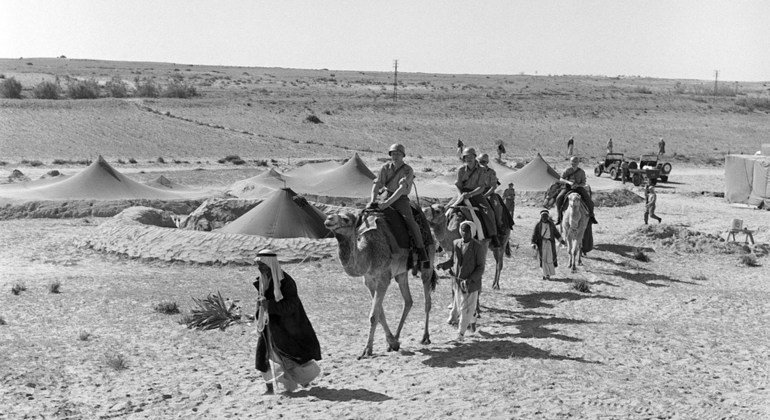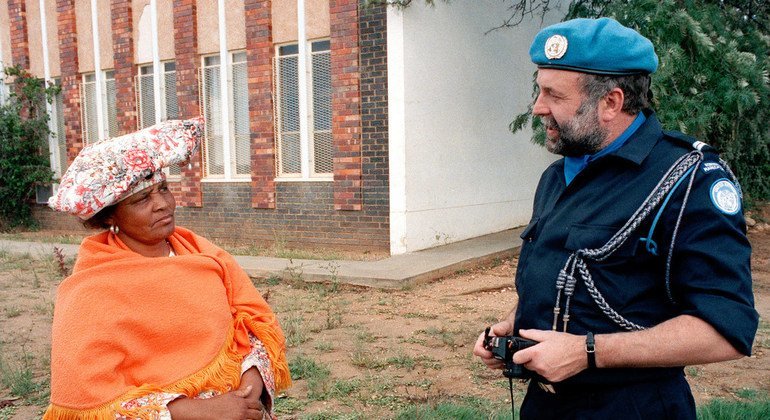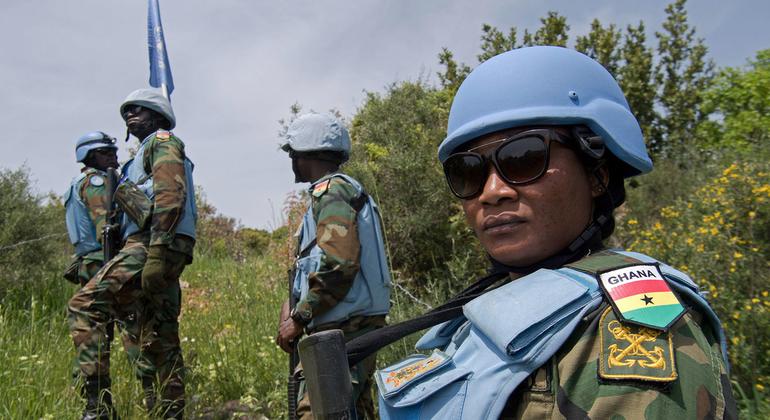
In the complex quests in civil wars, peacekeepers are not only monitoring cease-fire outlines, they are also helping to rebuild the basic institutions of the State. “This concept was an innovation within human history – that troops would deploy impartially, so that they would not take sides. They will deploy with the consent of the belligerents, so the belligerents would actually ask peacekeepers to help them implement peace agreements. ” One of Professor Howard’s case studies is Namibia. In 1989, a EL Peacekeeping mission helped end a civil war and supported the first free and fair elections in the country’s history. That was far from an easy task.
Significant achievement
These people help demobilize troops. They will help reform judicial and economic systems, so that when disputes arise, people don’t have to resort again in order to violence, to resolve them. Above all, UN peacekeepers save lives: Professor Howard says that millions of life have been spared since the creation of peacekeeping in 1948. “That’s not to say that in all of these cases, everything is perfect in the countries. But it is to say that they’re no longer at battle. ”

Millions of lives saved
UN Photo/M. Grant The concept of using soldiers, to not fight wars, but to keep the peace, was born throughout negotiations in the Middle East within 1948, when the newly-founded condition of Israel was in discord with its neighbours. In fact , the majority of UN Peacekeeping missions succeed in their primary objective, ultimately stabilizing societies and ending war. “UN peacekeepers help to keep the peacefulness, not because anyone concerns them, but they do see the advantage of having UN peacekeepers inducing people to move towards peace. ” “The main form of strength they exercised was marketing. Peacekeepers were there to help reform the political system. No one had ever voted in an election before. Peacekeepers were helping to inform citizens of their rights and what it indicates to elect their own commanders. ”

Example: Namibia
UNIFIL/Pasqual Gorriz One of peacekeeping’s main creators was Doctor Ralph Bunche, an American diplomat who was a senior formal with the UN. The UN has taken measures to prevent peacekeepers through committing acts of sexual violence. Entire battalions are already sent home and you can find mechanisms to make sure that victims feel safe to report peacekeeper sexual abuse and exploitation. There have been times when UN peacekeepers have caused immense harm to civilians – the very opposite of protecting them. A small minority has sexually exploited and mistreated vulnerable citizens.
Power of persuasion
“In southern Lebanon we often see peacekeepers patrolling on foot. They walk around the local residential areas. They visit the markets. They will talk to people. They’ll talk to the imam. They’ll talk to other local leaders. They’ll set up a medical center or provide dentistry solutions. They also provide a lot of employment in southern Lebanon. ” For helping bargain an armistice between Egypt and Israel in 1948, Dr . Bunche was awarded the Nobel Peace Prize in 1950. “Namibia is a country that has experienced tremendous hardship, ” Professor Howard says. “It’s had multiple colonial rulers. It had a genocide. It is been victim of a regional war, of civil battle. But surprisingly Namibia has not fallen victim to this tremendously difficult history. ” In other words, UN peacekeepers give a conduit for talks and for the reduction of tensions. They get to know the local residential areas and they also provide services. They will demonstrate the advantages of peace plus stability.
Sexual Abuse
The UN has also elevated more than million to back up victims of sexual mistreatment and exploitation in the Main African Republic (CAR), the particular Democratic Republic of the Congo (DRC), Haiti and Liberia. The Rely on Fund assists Member States assist sufferers and children born associated with sexual exploitation and misuse. An additional key task is protecting civilian lives. During the municipal war in South Sudan, UN peacekeepers opened their compounds to hundreds of thousands, providing sanctuary amid intense assault. The evidence, collected in 16 peer-reviewed studies, shows that peacekeepers – or even ‘blue helmets’ as the moniker goes – significantly decrease civilian casualties, shorten clashes, and help make peace agreements stick.

Example: Lebanon
“If we look at the finished missions since the end from the Cold War, two thirds of the time, peacekeepers have been profitable at implementing their requires and departing, ” Professor Howard says in an job interview with UN Video.
Foot patrols
UN Photo/GJ “If we appear systematically across the cases, peacekeepers are helping people, within their everyday lives, move from the situation where there’s battle and violent conflict to some situation where there is more peace. ”
Moving from battle to peace
Professor Howard argues that UN peacekeeping is most successful when using persuasion and inducement, rather than direct military force. Yet whatever the theory behind the particular success, the data from extensive, systematic studies, shows that the particular UN’s peacekeeping missions work well most of the time. The EL mission in Lebanon can be another example of peacekeeping succeeding by utilizing other means than army force. The mission, called UNIFIL , is in a highly volatile area, near the border between His home country of israel and Lebanon. On one side, are the Israeli Defense Causes. On the other, Hezbollah along with other armed actors.